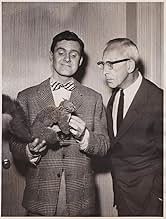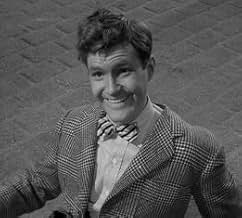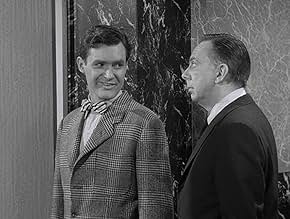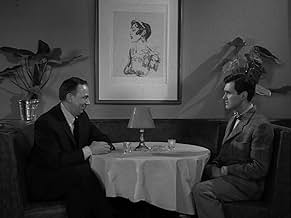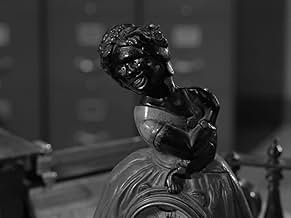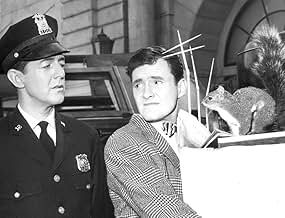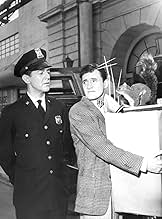Mr. Bevis
- Episode aired Jun 3, 1960
- TV-PG
- 25m
After losing his job, his car and his apartment on the same day, an eccentric loser gets a new lease on life from his guardian angel, but there is a price for keeping it.After losing his job, his car and his apartment on the same day, an eccentric loser gets a new lease on life from his guardian angel, but there is a price for keeping it.After losing his job, his car and his apartment on the same day, an eccentric loser gets a new lease on life from his guardian angel, but there is a price for keeping it.
- Narrator
- (voice)
- Michelle
- (as Coleen O'Sullivan)
- Director
- Writer
- All cast & crew
- Production, box office & more at IMDbPro
Featured reviews
Don't kill his vibes
Mr. Bevis, the likable Butt-Head
Enter Time Travelling Henry Jones
Henry Jones not only plays an angel in this episode but his light character is also a time traveller who makes passing comments about meeting Ben-Hur. I am guessing that this Zone character gave writer William Welch a few ideas when Welch would script two Voyage to the Bottom of the Sea episodes (A Time To Die/No Way Back) concerning a time traveller - Mr Pem - played by Henry Jones.
The arrogant angel/arrogant Mr Pem both appear in rooms with only the voice heard and then they materialize in person. Both characters constantly vanish into thin air and re-appear at the drop of a hat. However, Mr Pem was "remarkably stupid" and the angel was far from foolish. Mr Pem was more amusing, more entertaining, than the angel but I can't help thinking that Mr Pem was born out of The Twilight Zone.
Away from all this, you have to hand it to some of the often used MGM sets in this series. In the teaser we see that famous street, loaded with extras and nice old cars, that really puts the viewer into another time in Hollywood. If watching on a LCD monitor, press the zoom option (to get wide screen) so you can really take in that street, like me, you will want to jump into the screen and be at MGM. The next episode in screening order is much better than Mr Bevis, one of the best in fact...The After Hours
Closer to BEWITCHED than the TWILIGHT ZONE
Changing behavior...
Did you know
- TriviaAs he tells us, Bevis's car is a 1924 Rickenbacker. It was manufactured by a short-lived auto company established in 1922 by World War I fighter ace Eddie Rickenbacker. Powered by a six-cylinder engine, these Rickenbackers were the first Amercan production cars to feature four-wheel braking. The Rickenbacker Motor Company ceased production in 1927.
- GoofsWhen Mr. Bevis asks Mr. Hempstead, "Who might you be?", Mr. Hempstead corrects him, saying "Whom; objective case". That is, in fact, wrong, as 'Who' is used as a predicate nominative and, therefore, the nominative case is correct.
- Quotes
Narrator: [Closing Narration] Mr. James B. W. Bevis, who believes in a magic all his own. The magic of a child's smile, the magic of liking and being liked, the strange and wondrous mysticism that is the simple act of living. Mr. James B. W. Bevis, species of twentieth-century male, who has his own private and special Twilight Zone.
- ConnectionsEdited into Twilight-Tober-Zone: Mr. Bevis (2021)
Details
- Runtime
- 25m
- Color
- Aspect ratio
- 1.33 : 1

